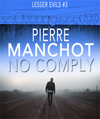Let’s get something straight: I love punk rock.
Concerned friends and family often ask me, “How come? It’s just the same three chords in every song! It all sounds the same!”
And in a lot of regards they have a point there. A lot of punk rock is indeed the same three chords over and over again and I can see, for the uninitiated, why that might appear to be overly-simple and repetitive.
But hold on there, cowboy, before we get into the complexities of Punk Rock, let’s take a look at the theory of Emergence. In my simplest terms, Emergence is how chaos organizes when confronted with entropy. Here’s how economist Jeff Goldstein describes it:
“…the arising of novel and coherent structures, patterns and properties during the process of self-organization in complex systems.”
It’s why our solar system looks the way that it does (9 different planets, coherently formed depending on the weight and density of it’s material in relation to it’s proximity to the sun’s gravity). Radiolab has a neat episode explaining how cities evolve due to this principle and there have been many theories put forward that Emergence is also the driving principle behind biological evolution as well– that novel divergences occur within the fractal genetic code.
Ahem. A fractal is a self-repeating sequence. Now you know that, nerd.
Let’s get back to punk rock for a moment. You have this basic three chord song structure (self-replicated within the genre, just like a fractal) that is seemingly played ad nauseam throughout the genre’s history. But divergence and novelty will out. Bands like Jawbreaker or Nerfherder will take those three chainsawin’ buzz chords and arrange them in such a way that it becomes operatic. Screeching Weasel’s Edge of the World is perhaps the perfect example of this: it’s a pop-punk song with a standard verse and chorus structure (complete with whoa-oh harmonies) but after a certain point (when the distortion cuts in) Ben Weasel simply repeats the refrain (“I’m falling… off the edge… of the world”) over and over and over until the phrase is reduced to a primal howl, while still being vaguely understandable. The meaning of the phrase emerges. The effect is not dissimilar to the Romantic Poets’ notion of Sublimity.
Indulgent Punk Rock Tangent: That could be why adding punk sensibilities has preserved certain traditional music– by introducing the variable of vocal aggression, classic Irish music has a modern place with The Pogues, country has a more northernly American appeal with groups like The Cowmen and political folk has more emotional resonance with Mischief Brew (RIP, Erik Petersen).
How does all this, in any coherent way, relate back to writing? Broadly, I’m referring to a larger creative anxiety but let’s stick with what I know. There’s a lot of fear of redundancy in the creative world. Phrases like “It’s been done,” or “The Simpsons did it,” keep a lot of people from experimenting with the ideas that they’ve come up with. While a certain level of awareness of common tropes and clichés is probably a beneficial thing to keep in mind, succumbing to creative paralysis because you want to be purely original is ultimately fatalistic to the creative process. That’s the secret that punk understands: “It’s been all done before… but not by me.”
There’s the repetitive format to look at first. A friend told me that a study was done between two groups of design students. One group was told to focus on quantity, the other on quality. In this anecdote, the quantity-focused group turned in much better projects because they had reduced the process to muscle-memory, with which they could then innovate upon, while the quality group largely failed, having spent all term trying to craft ingenuity from the bottom up. Keeping things simple and learning those simple things first is paramount before moving onto more ambitious projects.
And then there’s the individual level, the writer has a lot to inject into a story. Your understanding of human relationships, conflict, and character psychologies is going to be unique to your own experience as a person. Literally, you can’t recreate what somebody else has done. Back to Punk: famously, Smells like Teen Spirit was Cobain’s attempt to rip off The Pixies. In turn, Blur’s Song 2 was their attempt to make fun of America’s grunge scene that Nirvana encapsulated. And yet the differences between the three are actually pretty staggering. Because you can’t help but put yourself, for better or worse, into the projects that you want to succeed.
It’s not that I’m saying you should plagiarize wholesale and produce cookie-cutter knockoffs for a cash grab. Don’t do that. That’s killing the world intellectually. I’m saying, in the realm of art, and especially in the realm of punk’s DIY mentality, you are inevitably going to imitate that which you are most interested in. In that process you are going to learn a certain language. In Punk’s case, the language is three chords, a sense of youthful world-weariness and whoa-ohs. In Noir’s case, the language is a dead body, a femme fatale and a sense of earned world-weariness. Or what have you with your preferred genre.
Once you’ve learned the language, that fractal of the same ever-repeating story, go ahead and write the story that you want to. Do it yourself. It might fall into the same categories that came before you– Futurama ripped off Star Trek which ripped off Shakespeare’s greatest works which ripped of the Greeks which ripped off what all of our ancestors shared huddled together in a cave… but this one will be yours and it’ll reflect the times that you live in. Even if it feels the same to something you’ve read recently, remember that Screeching Weasel and The Queers shared (stole?) songs freely and, despite their similarities, persist as completely different, currently-touring entities to this day.
Don’t be afraid to try something that’s been done. You’ll find in the process that novelty and structure, will, uh, uh, emerge*.
So long as you do the work.
*Jeff Goldblum reference.
For some punk rock literature, check out No Comply, a parable about immigration, authoritarianism, and stealing a fuckload of guns and is available in paperback and kindle here.
